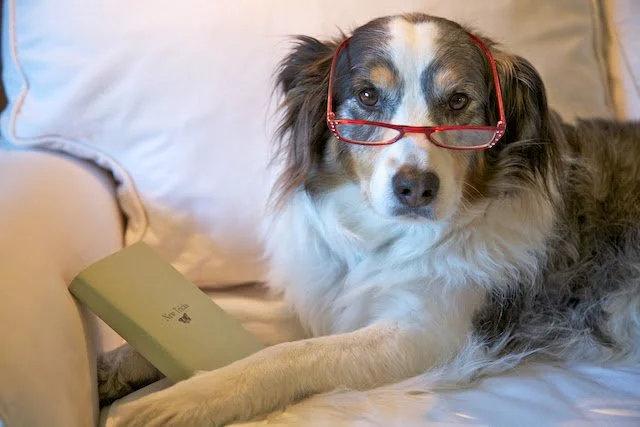Old dog new tricks? Maybe.
"If we don't change, we don't grow. If we don't grow, we aren't really living." Gail Sheehy
I was an aide to a U.S. Army General years ago. We traveled quite a bit meeting with other Army senior leaders and visiting soldiers. At one particular base we frequented, there was an older man, Mr. Wallace who worked the front desk at the military guest house. I never knew his first name. He had a plastic gold plate at the counter with, “Mr. Wallace” engraved on it. He was there in the quiet, late evening darkness every time we arrived.
My boss and I would typically arrive late after a long day’s travel, looking for quick, friendly service – quick service. If we could skip check-in we would, but of course there were rules on this military base. Mr. Wallace was indeed friendly. He had that southern gentleman charm to him. But he was anything but fast. “Mr. Wallace is going to move at Mr. Wallace’s speed,” I remarked as we wearily dragged our bags to our rooms. My boss chuckled in agreement. We both knew Mr. Wallace was an old dog and neither of us could teach him a new trick – speed, as we impatiently waited for our room keys.
Can you teach old dogs new tricks? Do you have that employee who has been in the company forever, set in his or her ways? It depends on the person and the situation is my answer. I’ve served in numerous organizations with ‘old dogs’ working for me. As leaders we desire these people to adapt to our leadership and accept and embrace change. It won’t happen organically, especially with older people, more set in their ways. I don’t mean to stereotype, but I have experienced these old dogs countless times. Some of them will indeed adapt to your leadership and the change which occurs in organizations. For those who resist, leaders have a choice. Accept it and work with it or find creative ways to get them to adapt. Here are my experiences and thoughts.
Sometimes I’ve not challenged the old dog. I valued their experience, and they were nice enough and effective enough, so I let them be. With older people, I’ve always given them respect, sought their advice, and propped them up as the expert in certain areas of the organization. Indeed, if they were disruptive and counterproductive to the needs of the team, I would consider their removal, but only after attempting to bring them around. I might let go of my desire to change them and accept what I have, working within their capacity and around their quirks. I’ve found, at times, that I needed to defend them as others were frustrated with their ways. “I know Walter is who he is but consider his experience and value to the organization. I, for one lean on that often so I’m willing to accept he is a bit set in his ways,” I would share with a teammate. I’ll ask others to adapt a bit with me but, of course, never to accept inappropriate or toxic behavior.
There is a ‘way’ with old dogs. Some can be taught new tricks. Don’t approach them with a fanny pack full of dog treats. Instead, if change is needed, work extra hard to explain the what and the why to the old dog. Seek their knowledge and input. Ask how they might see a different future or a different way to do something. Then respectfully ask (not tell), as a favor, for the sake of the organization for them to adapt. I’ll be specific about what behavior or methods I want changed. I might even make light of it with the group (only if appropriate) to break the tension and allow the old dog to reflect on the ‘days of old,’ and vent about ‘the new way’ and about us ‘youngins.’
Everyone can and should adapt to changes in an organization. Any old dog worth his or her salt will understand this, their role as a teammate, and adjust to the leader and the situation. As with everyone I work with, I’ll make the effort to get to know them deeply. For the older ones, I’ll pick their brain and honor their experience often, propping them up as the ‘wise one’ who can help myself and the greater team.
Again, never accept bad behavior or poor performance but don’t throw in the towel when you encounter the old dog. Get to know them. Offer respect. Learn from them. If they need to learn a new trick, take some time to explain it and teach it. Or accept that you have a Mr. Wallace, take a deep breath and go on about your day.
Make it Personal!
Rob
Rob Campbell

